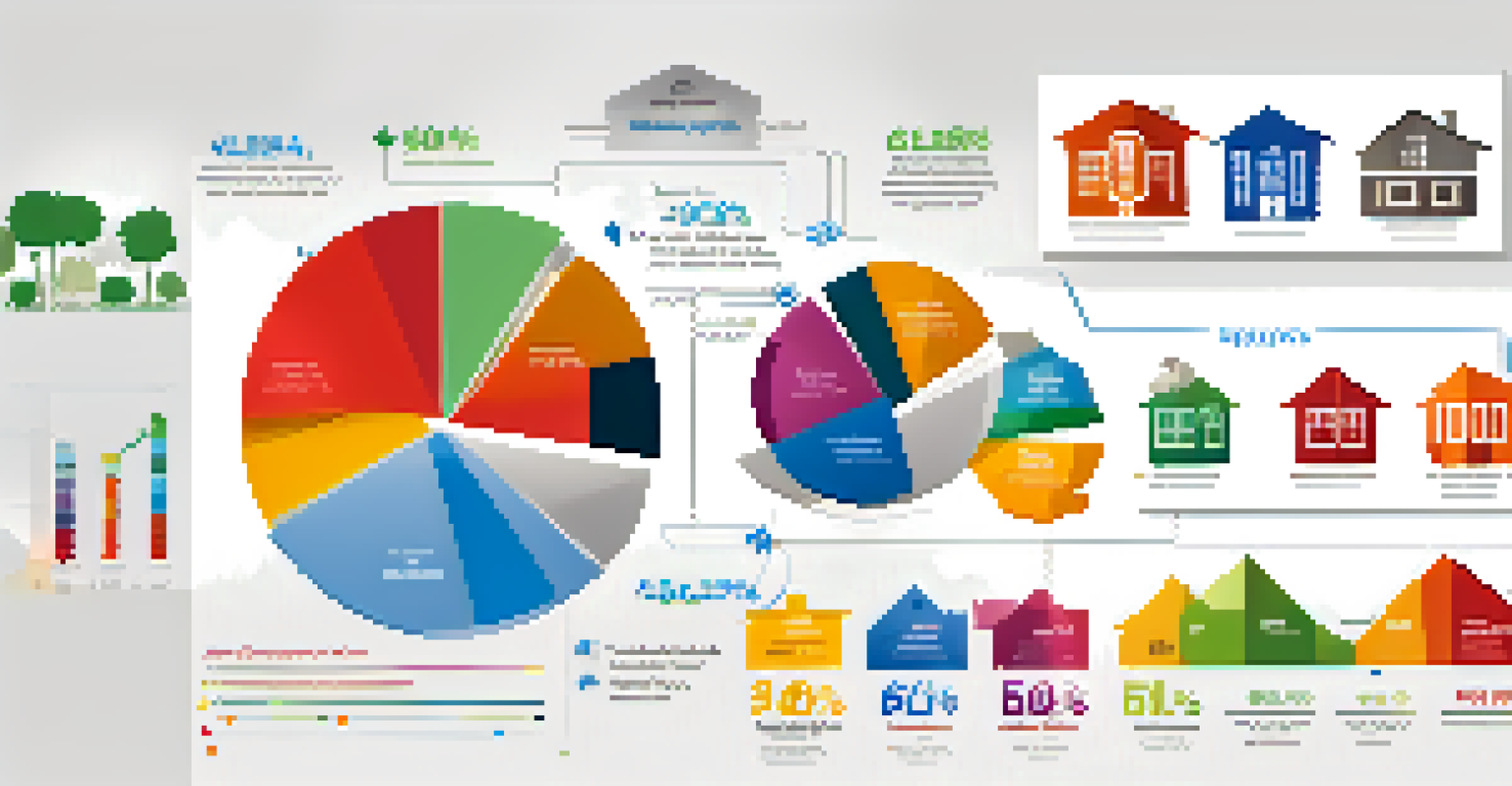The Impact of Market Trends on Closing Costs Today

Understanding Closing Costs in Real Estate Transactions
Closing costs refer to the fees and expenses paid when finalizing a real estate transaction. These can include loan origination fees, title insurance, and appraisal costs, among others. Typically, buyers and sellers share these costs, but the specific amounts can vary widely depending on local customs and market conditions.
In the world of real estate, understanding the costs associated with buying or selling a home can empower consumers and lead to better financial decisions.
In today’s real estate landscape, closing costs can significantly impact a buyer's overall budget. For instance, in a competitive market, sellers might be less willing to cover these costs, pushing more expenses onto buyers. This shift can influence how buyers approach their offers and financing options.
Understanding closing costs is crucial for anyone involved in a real estate transaction. By being aware of these expenses upfront, buyers can better prepare financially, potentially improving their chances of a smooth closing process.
How Market Trends Affect Closing Costs
Market trends, such as supply and demand dynamics, play a significant role in determining closing costs. In a seller's market, where demand exceeds supply, buyers may face higher closing costs as sellers are less likely to negotiate. Conversely, in a buyer's market, sellers may offer to cover some closing costs to attract buyers.

Additionally, interest rates can influence closing costs. When rates are low, more buyers enter the market, which can lead to increased competition and, consequently, higher closing costs. On the other hand, rising interest rates may cool down buyer demand, potentially lowering closing costs as sellers become more flexible.
Closing Costs Can Vary Widely
Closing costs encompass various fees and can differ significantly based on local market conditions and regional factors.
Keeping an eye on these trends is essential for buyers and sellers alike. By understanding how the market influences costs, individuals can make informed decisions that align with their financial goals and timelines.
Regional Variations in Closing Costs
It's important to note that closing costs can vary significantly by region. For example, states like California and New York often have higher closing costs due to various taxes and fees imposed by local governments. In contrast, states with lower taxes may offer more affordable closing expenses.
The secret to getting ahead is getting started, and that starts with knowing all your costs.
These regional differences can impact buyers' decisions, especially if they're considering relocating. A buyer moving from a low-cost area to a high-cost area may be surprised by the additional expenses they face. Understanding local market conditions can help buyers budget effectively for these costs.
Ultimately, being aware of regional variations allows buyers to prepare and plan accordingly. Researching specific areas can lead to better financial decisions and a more successful buying experience.
The Role of Lenders in Closing Costs
Lenders play a pivotal role in determining closing costs through their specific fees and requirements. Different lenders may offer varying rates for services like loan origination, underwriting, and processing. Therefore, it's crucial for buyers to shop around and compare different lenders to find the best deal.
Moreover, lenders may provide options for lower closing costs. For example, they might offer a no-closing-cost mortgage, where the borrower pays a slightly higher interest rate instead. This approach can be appealing for buyers who prefer to preserve cash upfront, but it's essential to consider the long-term implications of higher monthly payments.
Market Trends Influence Costs
The state of the real estate market, including supply and demand dynamics, directly affects how closing costs are negotiated and allocated.
Understanding the lender's role in closing costs empowers buyers to make strategic decisions. By evaluating various financing options, buyers can choose the path that aligns with their financial situation and goals.
Negotiating Closing Costs: Tips and Strategies
Negotiating closing costs can be a valuable strategy for buyers and sellers alike. Buyers can request that sellers cover some or all closing costs, especially in a buyer's market. This negotiation can make a substantial difference in the affordability of a home purchase.
Sellers, on the other hand, might offer to pay closing costs as an incentive to attract buyers. This tactic can help sellers stand out in a competitive market, making their property more appealing. However, sellers should carefully consider how this impacts their overall sale price.
Effective negotiation requires good communication and research. Both parties should be aware of industry standards and local customs to negotiate confidently and effectively.
The Impact of Inflation on Closing Costs
Inflation can have a significant impact on closing costs, affecting everything from service fees to material costs. As inflation rises, many service providers may increase their fees, leading to higher closing costs overall. This can particularly affect buyers who are already stretching their budgets.
In an inflationary environment, buyers may also find it challenging to predict future costs. For instance, a buyer might secure a mortgage at a low rate today, but closing costs could increase by the time they finalize their purchase. This uncertainty can complicate financial planning and decision-making.
Lender Choices Impact Expenses
Different lenders offer diverse fee structures and options that can greatly influence the overall closing costs for buyers.
Staying informed about economic trends and inflation can help buyers navigate these challenges. By understanding the potential impacts of inflation on closing costs, buyers can better prepare for their financial commitments.
Future Trends: What to Expect in Closing Costs
As the real estate market continues to evolve, so too will closing costs. Emerging technology, such as digital closing platforms, has the potential to streamline transactions and reduce costs. This innovation could lead to more transparency and fewer hidden fees, benefiting buyers and sellers alike.
Moreover, shifts in government policy, such as changes in tax laws or lending regulations, can also influence closing costs. Staying up-to-date with these potential changes can help buyers and sellers anticipate how their costs may fluctuate in the future.

Ultimately, being proactive about understanding market trends can lead to more informed decisions. As the landscape shifts, both buyers and sellers should remain adaptable and ready to seize opportunities that arise.